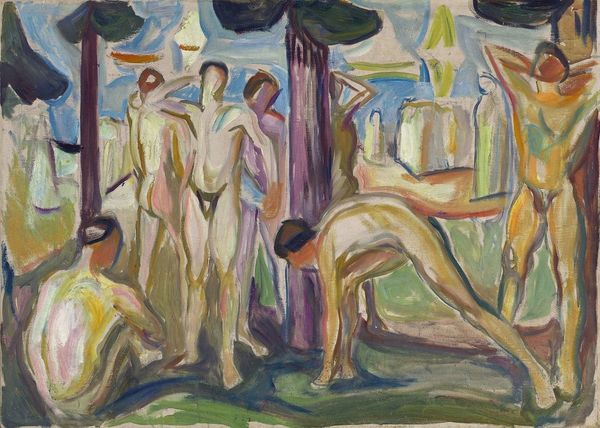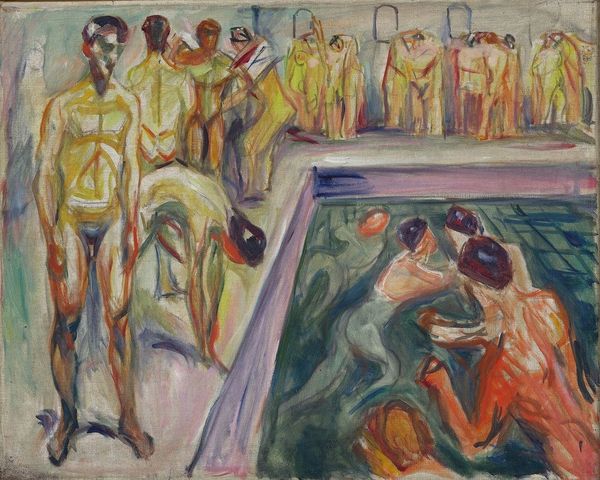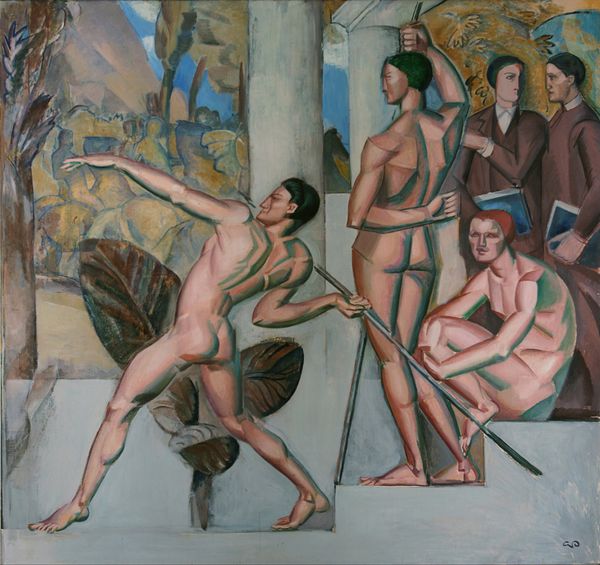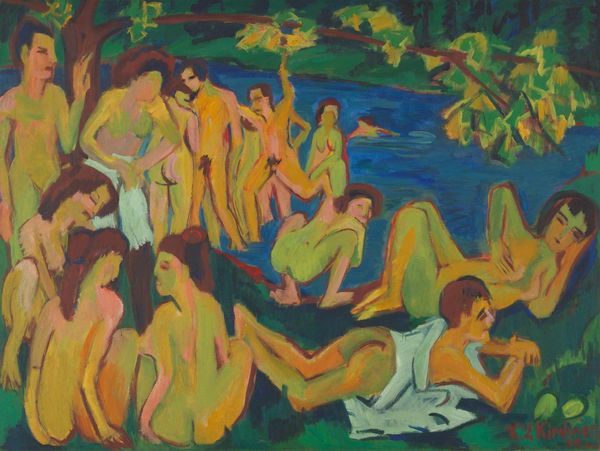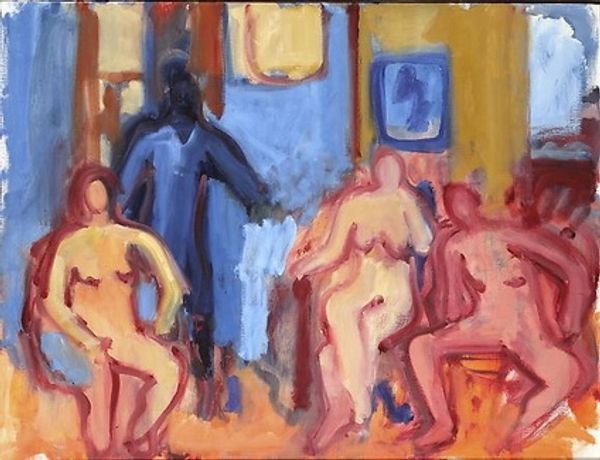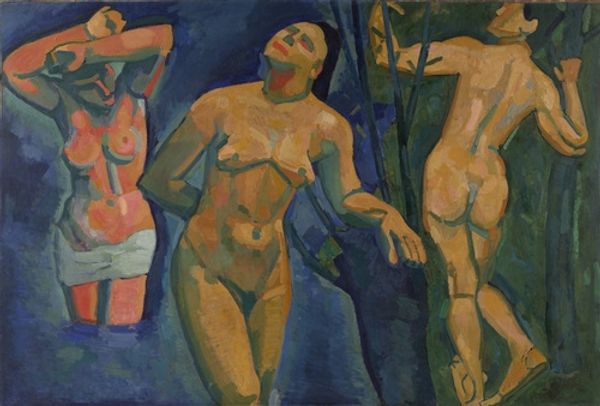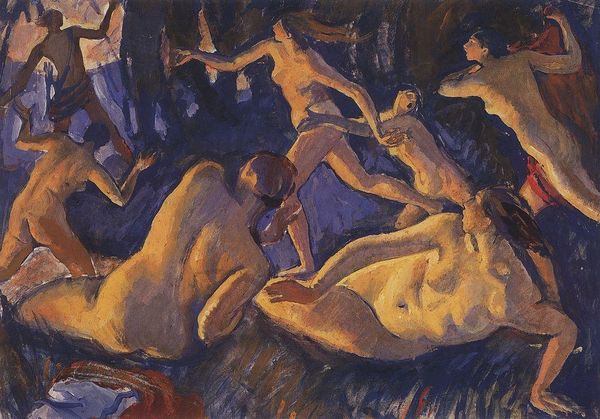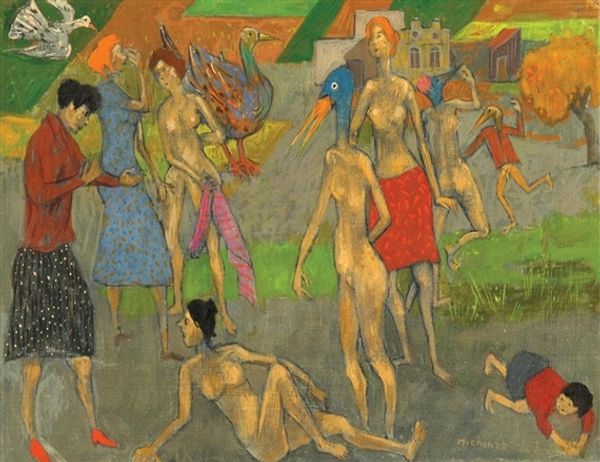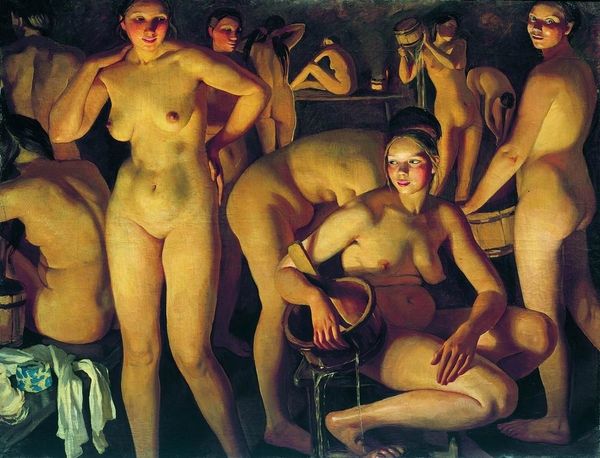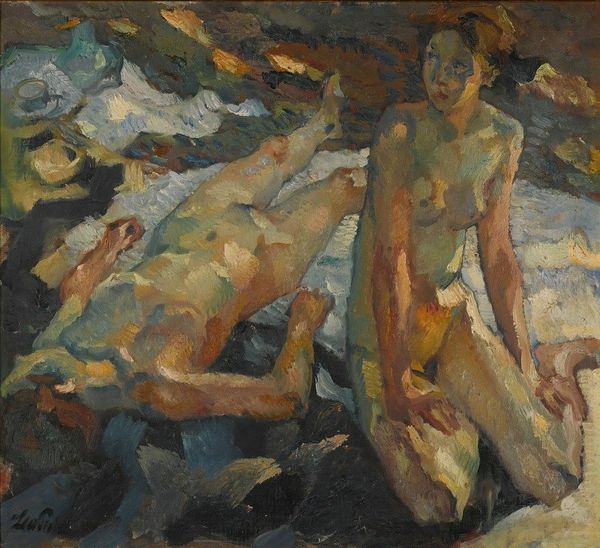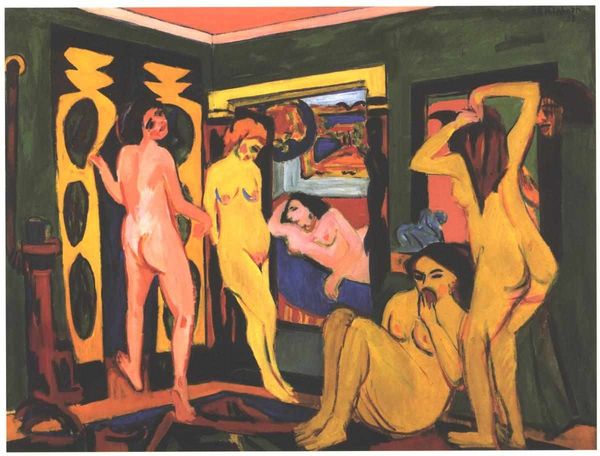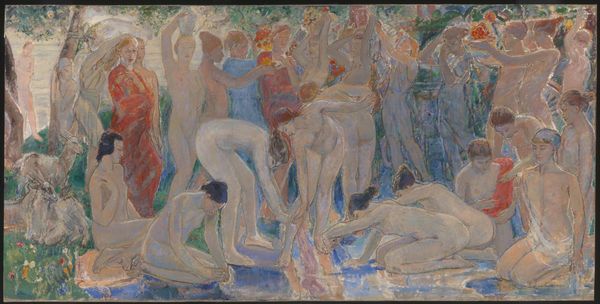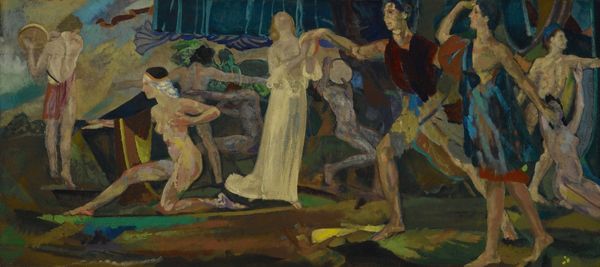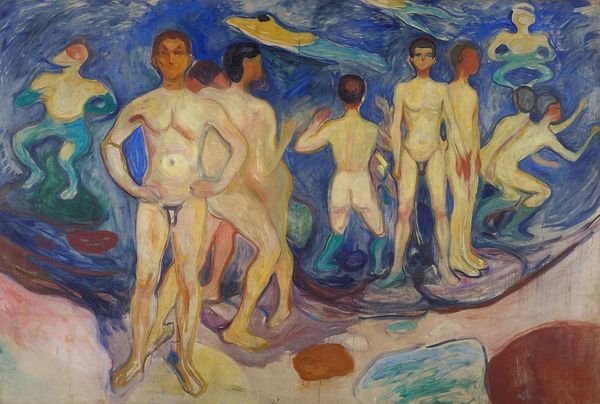
oil-paint
#
figurative
#
oil-paint
#
german-expressionism
#
oil painting
#
group-portraits
#
expressionism
#
nude
Copyright: Public Domain: Artvee
Curator: Let's discuss "Artillerymen," an oil painting created by Ernst Ludwig Kirchner between 1914 and 1915. It plunges us right into a space filled with figures undergoing, well, a cleansing ritual, if you will. Editor: Wow, what a raw, unsettling vision. The bodies are sallow and angular. There’s a disturbing homogeneity; their faces all carry the same vacant stare, like masks rather than expressions of individuality. Is this what Kirchner saw in these men, the crushing of spirit before war? Curator: Absolutely. This piece exists within the broader context of Expressionism, born from pre-WWI anxiety that explored the darker undercurrents of society. This particular work emerges from a crisis Kirchner himself experienced as he volunteered for military service. Though deemed unfit, the experience left him deeply traumatized, viewing the war machine as dehumanizing and destructive. Editor: So, it's less a portrayal of soldiers and more a depiction of souls being processed—reduced to fleshy, identical cogs. The shower, with its stark metal and industrial feel, feels like a brutal baptism, washing away any sense of self. Look at that one crouched down low. There is a complete feeling of dejection in that gesture. Curator: Precisely. Note the discordant use of color, typical of Kirchner. It evokes this profound emotional dissonance. He employed sharp angles, jagged lines, reflecting a fracturing of both physical form and the collective psyche. He's asking viewers to reflect on the psychological impact of militarization on the individual, a key theme within much of the socio-political commentary following The Great War. Editor: Makes me think of Kafka. That unsettling combination of dread, bureaucratic absurdity, and the sense of inescapable fate hanging over these young men. They’ve stepped into the machine, and you know it won’t let them go unscathed. It is really tragic and very revealing. Curator: Yes, quite perceptive. This image captures a critical moment in early 20th-century unease. The psychological burdens and loss associated with World War I would permeate art for decades to come. Editor: Thanks, seeing it in that context really amplifies its power. Kirchner took his personal torment and painted something brutally honest from it; he did not fail to make a memorable impact.
Comments
No comments
Be the first to comment and join the conversation on the ultimate creative platform.
